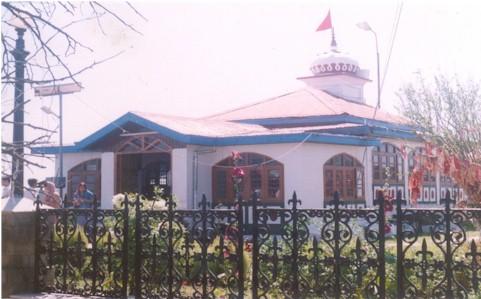New Delhi, April 26 (IANS) India has earned a “huge amount of goodwill” in Africa with its development partnership that focuses on capacity building and creating employment opportunities among other things, and is not in competition with China, said former foreign secretary Shyam Saran.
Addressing a session on “India Africa Development Partnership” Thursday evening, Saran, who is chairperson of the National Security Advisory Board, said while India’s political engagement with Africa is “somewhat thin” and “not quite so high up on agenda as it should be”, New Delhi’s development partnership with the continent is the largest.
Of the $2 billion-$2.5 billion India has spent on the ITEC (Indian Technical and Economic Cooperation programme) so far, $1.5 billion has gone to Africa, he said, adding “This shows the extent of focus on Africa.”
India’s development partnership has three aspects to it – building capacity, institution building and project assistance, he said at the talk organised by Aspen Institute India at the WWF Auditorium here.
A great deal of the capacity building is in the field of education, in giving scholarships to African people to study in India and providing technical training, under the ITEC, as well as in helping in human resource development.
“A major focus area, which is much in demand, is in the field of IT. India has set up the Kofi Annan Centre Excellence in Ghana to serve the larger African community. A number of institutions set up by India across Africa cater to the HR and capacity building, ” he said.
As part of its project assistance, India focuses on small and medium scale enterprises at the “lower end of the technical scale like carpentry, furniture making, wood work, etc,” he said
The Pan-Africa digital network, set up by India, that connects most African countries with fibre optic link and satellite, is a “major game changer in Africa”, said Saran, adding it provides e-education and e-health.
“Many hospitals in Africa are linked to speciality hospitals in India and diagnostics information is made available to hospitals. Besides, in e-education several institutions in Africa are linked to management and engineering institutes in India.”
With Africa expanding rapidly, its demands for skills and education is also growing,” he added.
India has held two India-Africa summits, which was attended by many African heads of state and government, to advance cooperation. “‘India made available in each case $5 billion to support cooperation.. Not to serve specific counties but Africa as a whole,” Saran added.
Of the $10 billion, $4 billion has been disbursed on different projects. But a major problem dogging India’s development partnership has been “slowness of implementation”, he said.
The Ministry of External Affairs has now created a Development Partnership Administration in order to hasten implementation, he said, adding that this problem needs to be addressed.
The development partnership “is not as a donor-recipient, but what we are offering is partnership. It is not charity, but mutually beneficial,” he said, adding that whatever India offers is determined by the partner country. “We align ourselves to the partners and their needs, which is part of the philosophy”.
On comparison with China, which has a very large footprint in Africa, he said it was “not possible and not advisable” to compare India’s development partnership with the work China does in the continent.
“India is not in competition with China.. It is far better for India to focus on what its strengths are. India over the years has carved out a certain position for itself.
“In Africa India is seen as a benign partner. .. This is not linked to how much money India has given, but the genuine contribution of India in building capacity, in education and vocational training,” he added.
Africa, which is growing economically at a rate of 5.2-5.3 percent, is also viewed by India as a valuable source of energy and resource. “It is not an extraction or resource-driven like China.. India has been careful,” he said, adding that India- Africa trade, which is at $65 billion, is pegged to touch $100 billion soon.
To a question on allegations of “land grabbing” by Indian firms, he said India is not involved in leasing or buying land. “If Indian companies are leasing land from African countries, I don’t think it is for land grab,” he said .
The opinions, beliefs and viewpoints expressed by authors, news service providers on this page do not necessarily reflect the opinions, beliefs and viewpoints of Hill Post. Any views or opinions are not intended to malign any religion, ethnic group, club, organization, company, or individual.
Hill Post makes no representations as to the accuracy or completeness of any information on this site page.


